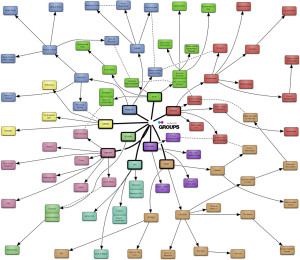Basketball Coaching and Learning to Delegate

Basketball Coaching can be a very challenging activity from anyone’s point of view, but some coaches compound the pressure placed upon them and their programing by trying to have too tight a control over every aspect of the program. Delegating can bring balance back to the task of basketball coaching and ultimately help pool a group of individual’s energies, skills, and talents into one focused goal for the benefit of the team or program.
A point to consider in delegating anything revolves around trust. For many coaches this can be a really problematic first step and one that as a new coach to any level of the sport finds difficult to take. The reason for this barrier though is quite simple. Most people struggle to trust easily due to a number of psychological reasons. As the saying goes, “trust is earned, not given”.
Coaches who have been working within a program for a while and had consistent staff around them will become more and more confident from firsthand experience with each individuals abilities to then delegate roles to others. A coach can then allocate roles and responsibilities more easily based upon the types of strengths and weaknesses observed in those around them. The problem is that in junior and semi-professional sport, is that relationships are often formed are only very brief and limited by a short timeline. It is only at the professional levels of the sport that colleagues within a program often work together for long and enduring times.
With this in mind, how does a coach develop an awareness about the people around them and learn to reap the rewards of delegating?
The first step is to select the right people to meet your coaching needs. Basketball coaching is about doing, so while job interviews might be a great formal process to follow, they are no way to evaluate a coach or their abilities. Every coach is slightly different, and people behave differently depending on the circumstances they find themselves within. A coach in one program might not seem to have as great a value, as in another program. Therefore, with this in mind a Head Coach must select their basketball coaching staff first hand.
Ways to do this can be varied but options include:
- Inviting perspective candidates to take part in camps
- Inviting perspective candidates to take part in the pre-season training schedule
- Viewing the coach in action; not always easy when in a competing program
- Discuss with coaches who you have an affiliation with and understand your program philosophy their summery of the coaches strengths and weaknesses
Another strategy is to provide specific guidelines for the activities that are delegated. This can be a somewhat problematic strategy as it often takes some time for a Head Coach to become knowledgeable of how best to delegate specific roles and tasks. Even the simplest of activities can have a number of different meanings to depending on an individual’s perspective. When talking about the activity of basketball coaching there is a need define exactly what is expected and wanted. As a starting point, build documents such as Position Descriptions and Operational Plans for a number of different roles. These types of documents will help layout what is needing to be done and help define those things which are currently falling through the cracks.
Final suggestion is spending time with staff members on and off the court. The added benefit for basketball coaching in knowing people intimately is that the opportunity for truly open two-way communication becomes more and more likely. People, the more you spend time with them, will display their character in different lights and this may well help best to see if they are right for your program and in what capacity. This might take the form of multiple conversations about coaching philosophies, discussions on trends within basketball coaching or simple asking for a coach’s opinion about a specific need. From these talks, hopefully options will appear about what best to delegate to different members of staff.
There are many different ways in which delegating can provide real rewards and benefits to a program. Most of these will result in a more intimate knowledge of the people involved in the program which will lead to easier decisions in regards to delegating aspects involved in basketball coaching and team operations.








Our basketball camps are growing rapidly (www.austinbasketballcamps.com) and I have a great staff in place. This article is excellent. Is the mindmap just a stock image or is that actually built out on delegating? If so, how can we enlarge that? Thanks!
Hi Coach,
Unfortunately, the picture is just a prop for the article. It was included to demonstrate the complexity of coaching and the many roles that support this activity (especially at the professional level).
Regards
FBC